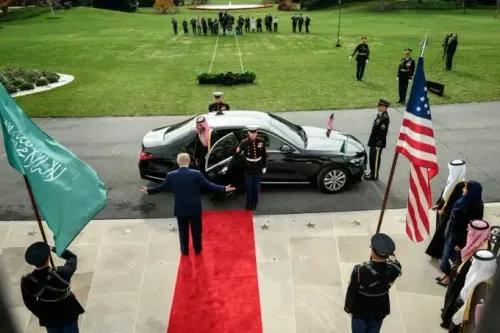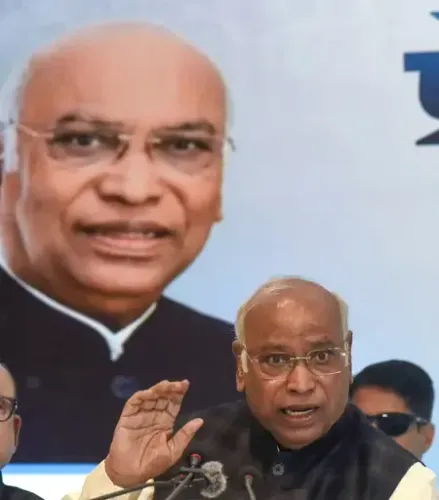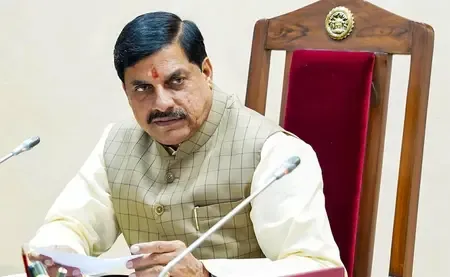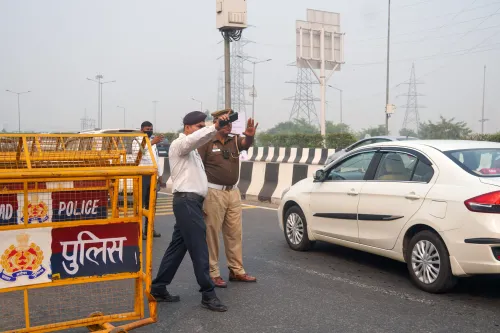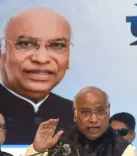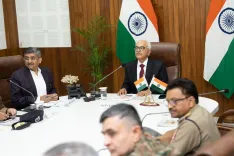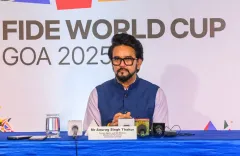Did PM Modi Meet Author Berjis Desai to Receive 'Modi’s Mission'?
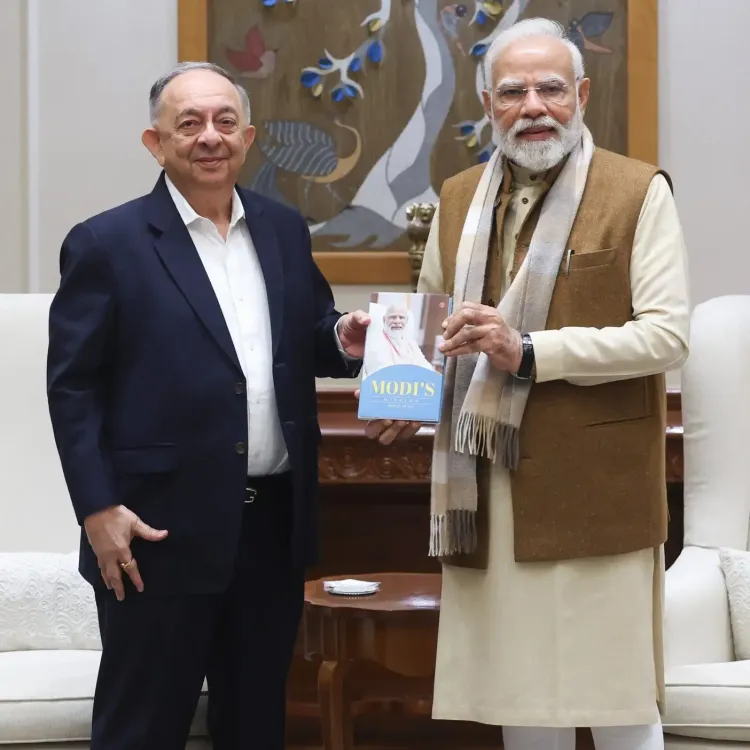
Synopsis
Key Takeaways
- PM Modi's leadership has led to significant decisions that transformed India.
- The book offers a detailed account of Modi's early struggles and values.
- Desai's work showcases the connection between personal values and national service.
- Key political events such as the abrogation of Article 370 are highlighted.
- The narrative emphasizes the power of resilience in shaping leaders.
In New Delhi on November 18, Prime Minister Narendra Modi had the pleasure of engaging with Berjis Desai, the writer behind ‘Modi’s Mission’. The Prime Minister expressed his joy in meeting the distinguished lawyer and receiving a copy of his work via a post on X, in reply to Desai’s earlier tweet that featured a photograph of their meeting.
Berjis Desai shared his excitement on X, stating, “I had the privilege of presenting my book, MODI’S MISSION, to the Honourable Prime Minister today.”
The book was officially launched in Mumbai last month, with notable attendees including Maharashtra CM Devendra Fadnavis, Deputy CM Eknath Shinde, and Maharashtra Governor Acharya Devvrat.
During the book launch, Governor Devvrat highlighted the significant decisions made by Prime Minister Modi that changed the course of India, such as the abrogation of Article 370 and the peaceful resolution of the Ram Janmabhoomi dispute, which he attributed to Modi’s unwavering determination.
Desai’s book not only chronicles PM Modi’s life but also illustrates how values, awareness, and a commitment to the nation are shaped over time. Under Modi’s stewardship, India has seen landmark actions like the revocation of Article 370, the construction of the Ram Temple, the Citizenship Act, and the prohibition of triple talaq. Each of these pivotal decisions stems from a profound sense of national awareness,” he noted.
Chief Minister Fadnavis remarked that this book distinguishes itself from other narratives about PM Modi by examining “how one’s character and values are formed through adversity.”
He elaborated on Modi’s challenging beginnings, stating, “Modi ji’s early life was characterized by hardship. He grasped the essence of sacrifice early on—often eating less to ensure his family had more. From the tender age of nine, he recognized what selflessness entailed.”
“He dedicated himself to a mission that few anticipated would lead an RSS pracharak to the Prime Minister’s chair. The author meticulously captures Modi’s responses to ideological challenges, ranging from Article 370 to Ram Mandir, Triple Talaq, and judicial reforms, showcasing his thoughtful clarity,” Fadnavis concluded.

